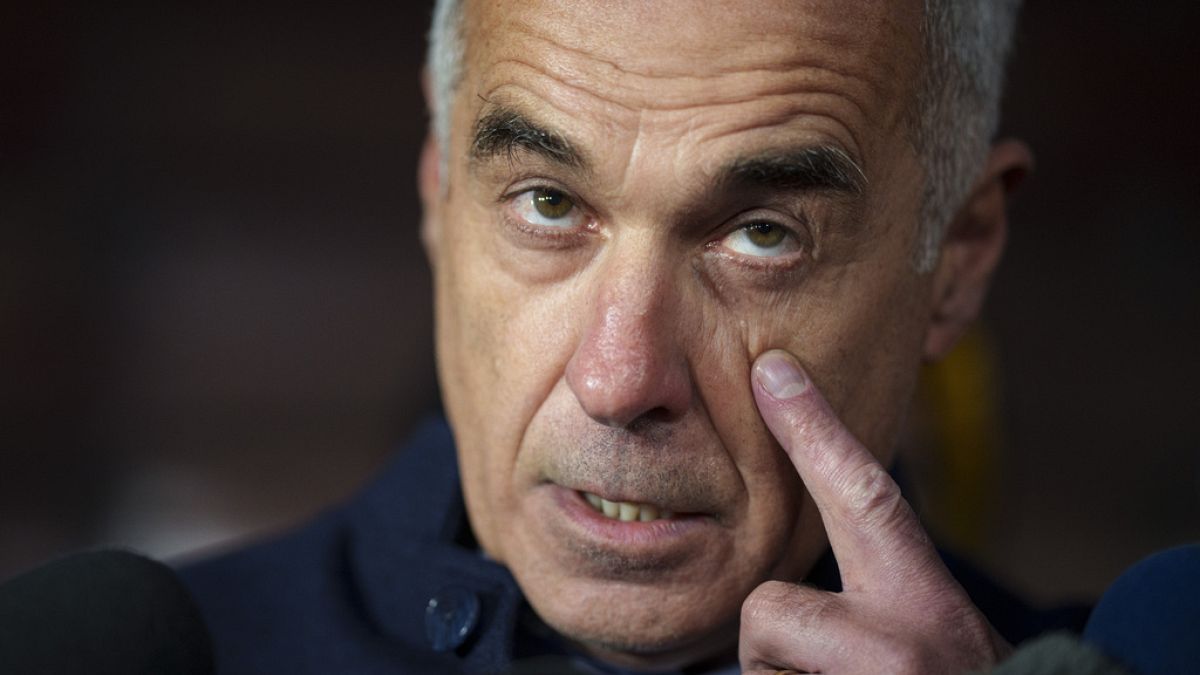What could happen to Ukraine if Călin Georgescu becomes president?

The independent nationalist beat all expectations by winning the first round of the presidential elections in Romania on Sunday.
Pro-Russia candidate Călin Georgescu won the first round of the presidential elections in Romania on Sunday, riding on a wave of anti-establishment protest votes and with suspected foreign social-media interference.
The unexpected rise of this independent nationalist candidate came as a shock, as most local surveys predicted he would win less than 10% of the vote.
With around 22.95% of the vote after nearly all ballots were counted, Georgescu was ahead.
Romania has been one of the big supporters of Ukraine since the beginning of the war, but what could happen if the anti-NATO candidate wins the second round on the 8 December?
‘Strong majority’ of Romanians are for NATO
A strong pro-EU and pro-NATO country, Romania is a pillar of the Eastern flank of NATO: it host multinational battle groups but also a key ballistic missile defence system in its Deveselu military base.
It shares a 650-kilometre-plus border with Ukraine, so it remains to be seen how a Georgescu victory in the second round would practically change Romania’s positioning.
“We can not expect even in this alternative any dramatic shift. A strong majority of Romanians do support a pro-European and Atlantic agenda and he just can’t go against this,” explained CEO of EUMatrix, Doru Frantescu.
“The pro-NATO attitude is quite strong and in fact if there is some dissatisfaction from NATO’s presence it is that NATO did not support Ukraine enough” he added.
Romania’s economic role in Ukraine
Since the beginning of the war, Romania has also played an important economic role for Ukraine by ensuring the transit of grain through its harbours.
“We (Romania) secure the gates of NATO at Black Sea which has been long considered as Russian sea. It should not be like that. It is a sea where there is also Crimea and Turkey and Russia,” explained The Greens MEP Nicolae Stefanuta.
“I think it is a gatekeeper role that is very important and we intend to keep this role as important and as reliable as possible,” he added.
And both Frantescu and Stefanuta believe that Georgescu’s anti-war rhetoric was not the main reason for this success.
‘Frustration with old guard’
Frantescu thinks his popularity comes down to “his anti-establishment slogans and frustrations of the population with the old guard.”
Stefanuta said that “it’s a lot about the economy and inflation, the poor state of things in Romania, and also about his promise to make peace at all costs. We don’t know what exactly that means, but these were his main political items.”
Georgescu, who ran independently, will face off against reformist Elena Lasconi in a runoff in two weeks.
Lasconi, of the progressive Save Romania Union party, or USR, won 19.17% of the vote. She beat incumbent Prime Minister Marcel Ciolacu from the Social Democratic Party, or PSD, who stood at 19.15%.
Lasconi, also a surprise winner going into the second round, strongly supports Romania’s key role in NATO and the European Union.
World News || Latest News || U.S. News
Source link



